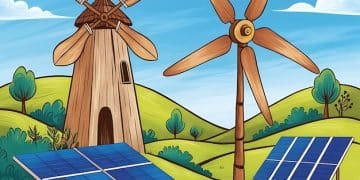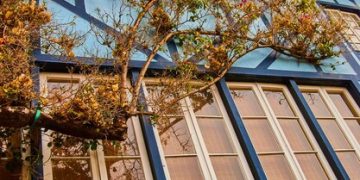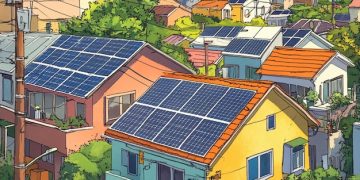Sustainable Home Renovation: Eco Upgrades for a 5% Value Boost
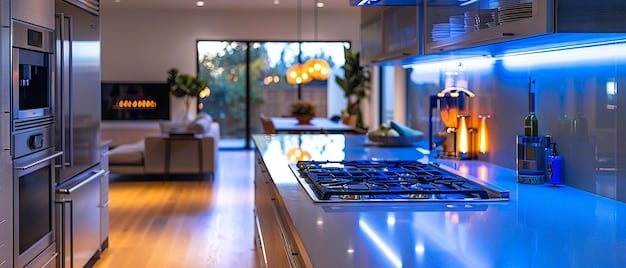
Sustainable home renovation not only benefits the environment but can also significantly increase your home’s value, potentially adding up to 5% through eco-friendly upgrades that appeal to environmentally conscious buyers and reduce long-term operating costs.
Embarking on a sustainable home renovation is more than just a trend; it’s a smart investment. Discover how eco-friendly upgrades can increase your home’s value by 5% and create a healthier, more efficient living space.
Understanding the Basics of Sustainable Home Renovation
Sustainable home renovation involves making eco-conscious choices during the remodeling process to minimize environmental impact and enhance energy efficiency. This approach considers the entire lifecycle of materials, from sourcing to disposal, aiming to create a healthier, more sustainable living environment.
When planning a sustainable home renovation, it’s important to consider several factors to ensure your project aligns with your environmental goals and budget. By incorporating eco-friendly materials, energy-efficient systems, and water conservation techniques, you can create a home that is both environmentally responsible and financially smart.
Choosing Eco-Friendly Materials
Selecting the right materials is crucial for a sustainable renovation. Look for options that are recycled, renewable, and locally sourced to reduce your project’s carbon footprint.
Energy Efficiency Upgrades
Improving your home’s energy efficiency can significantly reduce your utility bills and environmental impact. Consider upgrading insulation, windows, and appliances to more energy-efficient models.
- Recycled Content: Opt for materials made from recycled content, such as recycled glass countertops or reclaimed wood flooring, to reduce demand for virgin materials.
- Renewable Resources: Choose materials like bamboo, cork, and linoleum, which are rapidly renewable and have a lower environmental impact compared to traditional options.
- Low-VOC Finishes: Select paints, stains, and adhesives with low or zero volatile organic compounds (VOCs) to improve indoor air quality and reduce harmful emissions.
By prioritizing eco-friendly materials and energy efficiency, you can create a home that is both sustainable and valuable. These upgrades not only reduce your environmental impact but also make your home more attractive to environmentally conscious buyers.
The Financial Benefits of Eco-Friendly Upgrades
Investing in eco-friendly upgrades can provide significant financial benefits over the long term. While the initial cost may be higher, these upgrades often result in lower utility bills, increased home value, and potential tax incentives.
Homeowners often underestimate the financial advantages of a sustainable home renovation. By reducing energy and water consumption, you can save money on your monthly bills while also increasing the market value of your property. This combination of savings and increased value makes sustainable upgrades a wise investment.
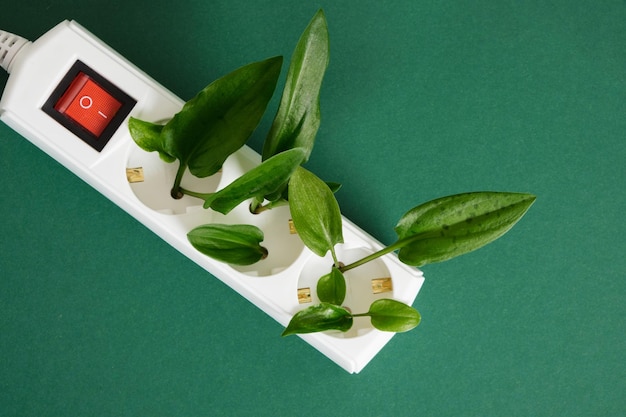
Reducing Utility Bills
Energy-efficient appliances, insulation, and windows can significantly lower your monthly utility bills. These upgrades reduce energy consumption, saving you money while also reducing your carbon footprint.
Increasing Home Value
Homes with eco-friendly features are becoming increasingly attractive to buyers. Upgrades such as solar panels, energy-efficient appliances, and water conservation systems can increase your home’s market value.
- Energy-Efficient Appliances: Upgrading to Energy Star-certified appliances can reduce energy consumption by up to 50%, lowering your electricity and water bills.
- Solar Panels: Installing solar panels can generate clean energy, reducing your reliance on fossil fuels and potentially eliminating your electricity bill altogether.
- Water Conservation Systems: Implementing water-saving fixtures like low-flow toilets and showerheads can reduce water consumption and lower your water bill.
Investing in these eco-friendly upgrades can lead to substantial financial savings and increase the attractiveness and value of your home. As more buyers prioritize sustainability, homes with these features will continue to stand out in the market.
Easy Sustainable Upgrades to Start With
Starting a sustainable home renovation doesn’t have to be an overwhelming task. There are several easy and affordable upgrades you can implement to begin your journey toward a more eco-friendly home. These small changes can make a big difference in your home’s environmental impact and overall efficiency.
Many homeowners are hesitant to start a sustainable home renovation due to concerns about cost and complexity. However, there are numerous simple upgrades that can be implemented without breaking the bank. These easy changes can help you reduce your environmental impact and save money on your utility bills.
Switching to LED Lighting
Replacing traditional incandescent bulbs with LED lighting is a quick and easy way to reduce energy consumption. LED bulbs use up to 75% less energy and last much longer than traditional bulbs.
Installing a Smart Thermostat
A smart thermostat can help you optimize your home’s heating and cooling, reducing energy waste. These thermostats learn your preferences and adjust the temperature automatically, saving you money and energy.
- Programmable Thermostats: Set your thermostat to automatically adjust the temperature when you’re away from home or asleep, reducing energy consumption.
- Low-Flow Showerheads and Toilets: Reduce water consumption by installing low-flow showerheads and toilets, which use less water without sacrificing performance.
- Sealing Air Leaks: Prevent drafts and energy loss by sealing air leaks around windows, doors, and other openings.
These simple upgrades are a great way to begin your sustainable home renovation journey. They are affordable, easy to implement, and can have a significant impact on your home’s energy efficiency and environmental footprint.
Long-Term Sustainable Renovation Projects
For homeowners looking to make a significant impact with their sustainable home renovation, there are several long-term projects to consider. These projects require more investment and planning but can result in substantial environmental and financial returns. They transform your home into a model of sustainability.
While easy upgrades provide immediate benefits, long-term sustainable renovation projects offer the greatest potential for reducing your home’s environmental impact and increasing its value. These projects require careful planning and investment but can transform your home into a sustainably efficient living space.
Installing Solar Panels
Solar panels can generate clean electricity, reducing your reliance on fossil fuels and potentially eliminating your electricity bill. This is a major step toward energy independence.
Replacing Windows and Doors
Upgrading to energy-efficient windows and doors can significantly reduce heat loss and energy consumption. Look for options with low-E coatings and airtight seals.
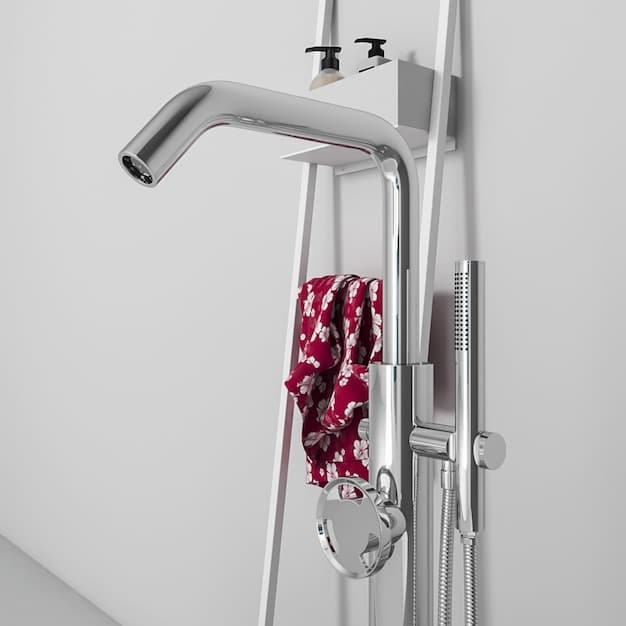
- Green Roofs: A green roof can improve insulation, reduce stormwater runoff, and provide habitat for wildlife.
- Rainwater Harvesting Systems: Collecting rainwater for irrigation and other non-potable uses can reduce water consumption and lower your water bill.
- Greywater Recycling Systems: Recycling greywater from showers and sinks for toilet flushing and irrigation can conserve water and reduce strain on municipal water supplies.
Embarking on these long-term sustainable renovation projects can transform your home into a model of sustainability. While they require a significant investment, the environmental and financial benefits are substantial, making your home more valuable.
Certifications and Standards for Sustainable Homes
When undertaking a sustainable home renovation, it’s helpful to be aware of the various certifications and standards available. These certifications provide guidance and validation for sustainable building practices, ensuring your project meets specific environmental criteria and benchmarks.
Navigating the world of sustainable building can be complex, but certifications and standards provide a framework for ensuring your sustainable home renovation meets recognized environmental benchmarks. These certifications offer guidance and validation for sustainable building practices.
LEED Certification
Leadership in Energy and Environmental Design (LEED) is a widely recognized green building rating system. LEED certification ensures your project meets rigorous environmental standards.
Energy Star Certification
Energy Star certification indicates that your home or appliance meets strict energy efficiency guidelines set by the EPA. This can help you save money on utility bills and reduce your carbon footprint.
- National Green Building Standard (NGBS): NGBS provides a framework for green building practices, covering aspects like energy efficiency, water conservation, and indoor environmental quality.
- Passive House Standard: The Passive House standard focuses on creating highly energy-efficient buildings that require minimal energy for heating and cooling.
- Living Building Challenge: The Living Building Challenge is the most rigorous green building standard, requiring projects to meet strict performance requirements in areas like energy, water, and materials.
Understanding these certifications and standards can help you ensure your sustainable home renovation meets recognized environmental benchmarks. These certifications provide guidance and validation, making your project more credible and valuable.
Maintaining Your Sustainable Home
After completing a sustainable home renovation, it’s important to maintain your home’s eco-friendly features to ensure long-term performance and savings. Proper maintenance not only preserves the environmental benefits but also protects your investment and maximizes your home’s value.
A sustainable home renovation is an ongoing commitment, requiring regular maintenance to ensure the long-term performance of your eco-friendly features. Proper maintenance preserves the environmental benefits while protecting your investment.
Regular Inspections
Conduct regular inspections of your home’s energy and water systems to identify and address any potential issues. This can help prevent leaks, energy loss, and other problems.
Proper Landscaping
Maintain your landscaping with native plants and water-efficient irrigation systems to conserve water and support local ecosystems. This enhances your home’s sustainability.
- Energy Monitoring: Track your home’s energy consumption to identify areas where you can further reduce usage.
- Water Conservation Practices: Implement water conservation practices like fixing leaks promptly and using water-efficient appliances.
- Sustainable Cleaning Products: Use eco-friendly cleaning products to maintain indoor air quality and minimize environmental impact.
By prioritizing regular maintenance and sustainable practices, you can ensure your home remains environmentally responsible and financially valuable. This ongoing commitment preserves the benefits of your sustainable renovation and enhances your quality of life.
| Key Point | Brief Description |
|---|---|
| 💡 Energy Efficiency | Upgrading appliances and insulation reduces energy usage. |
| ♻️ Eco-Friendly Materials | Using recycled or renewable materials lowers environmental impact. |
| 💧 Water Conservation | Installing low-flow fixtures reduces water consumption. |
| ☀️ Solar Energy | Installing solar panels generates clean, renewable energy. |
FAQ
▼
Sustainable home renovation involves making eco-conscious choices during remodeling to minimize environmental impact and enhance energy efficiency.
▼
Eco-friendly upgrades attract environmentally conscious buyers, reduce utility bills, and make your home more appealing in the market.
▼
Easy upgrades include switching to LED lighting, installing a smart thermostat, and sealing air leaks to improve energy efficiency.
▼
Look for certifications like LEED, Energy Star, and NGBS to ensure materials meet recognized environmental standards.
▼
Maintain sustainability through regular inspections, water conservation practices, and the use of eco-friendly cleaning products.
Conclusion
A sustainable home renovation is a rewarding investment that benefits both the environment and your financial well-being. By incorporating eco-friendly materials, energy-efficient systems, and water conservation techniques, you can increase your home’s value by 5% and create a healthier, more sustainable living space.


